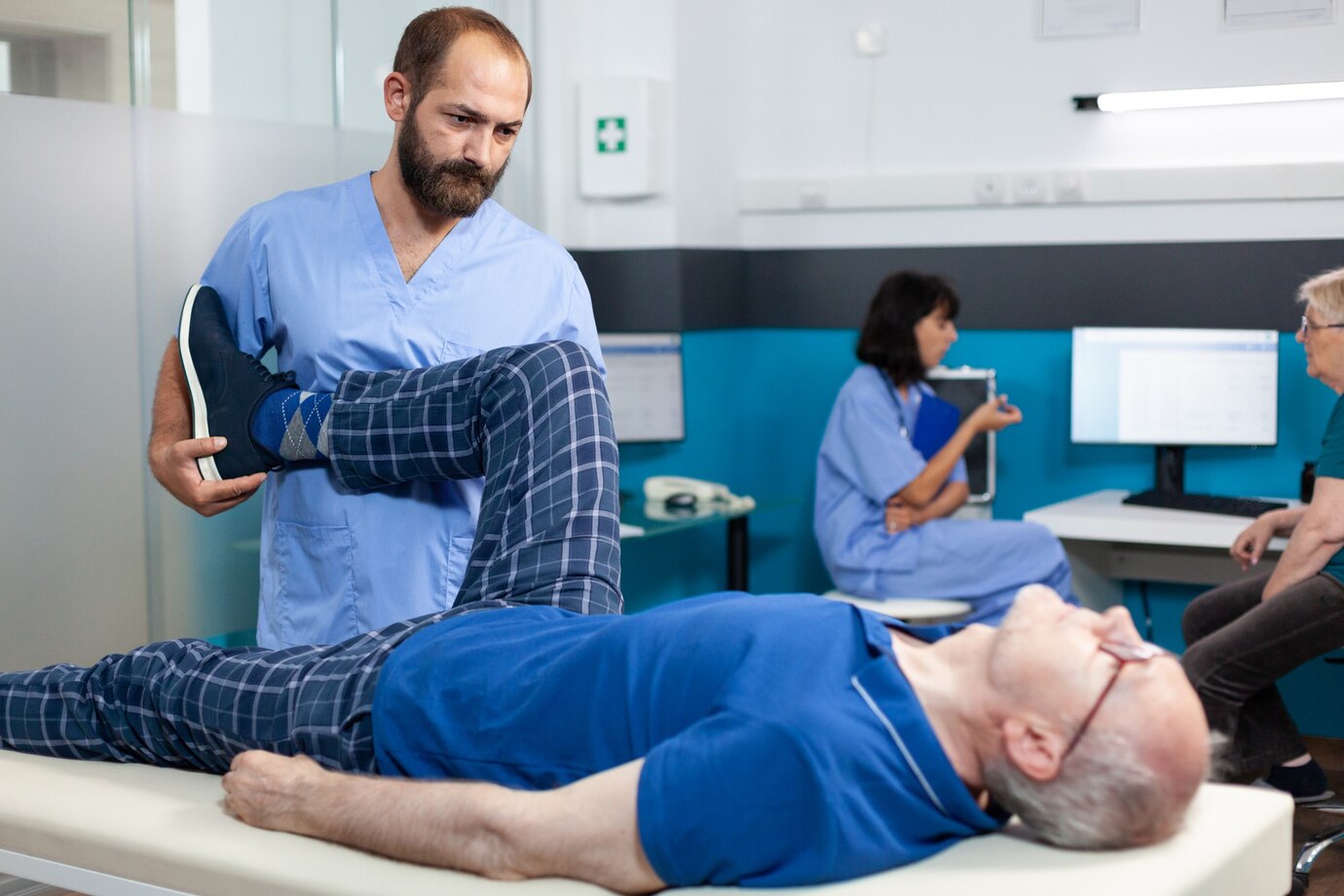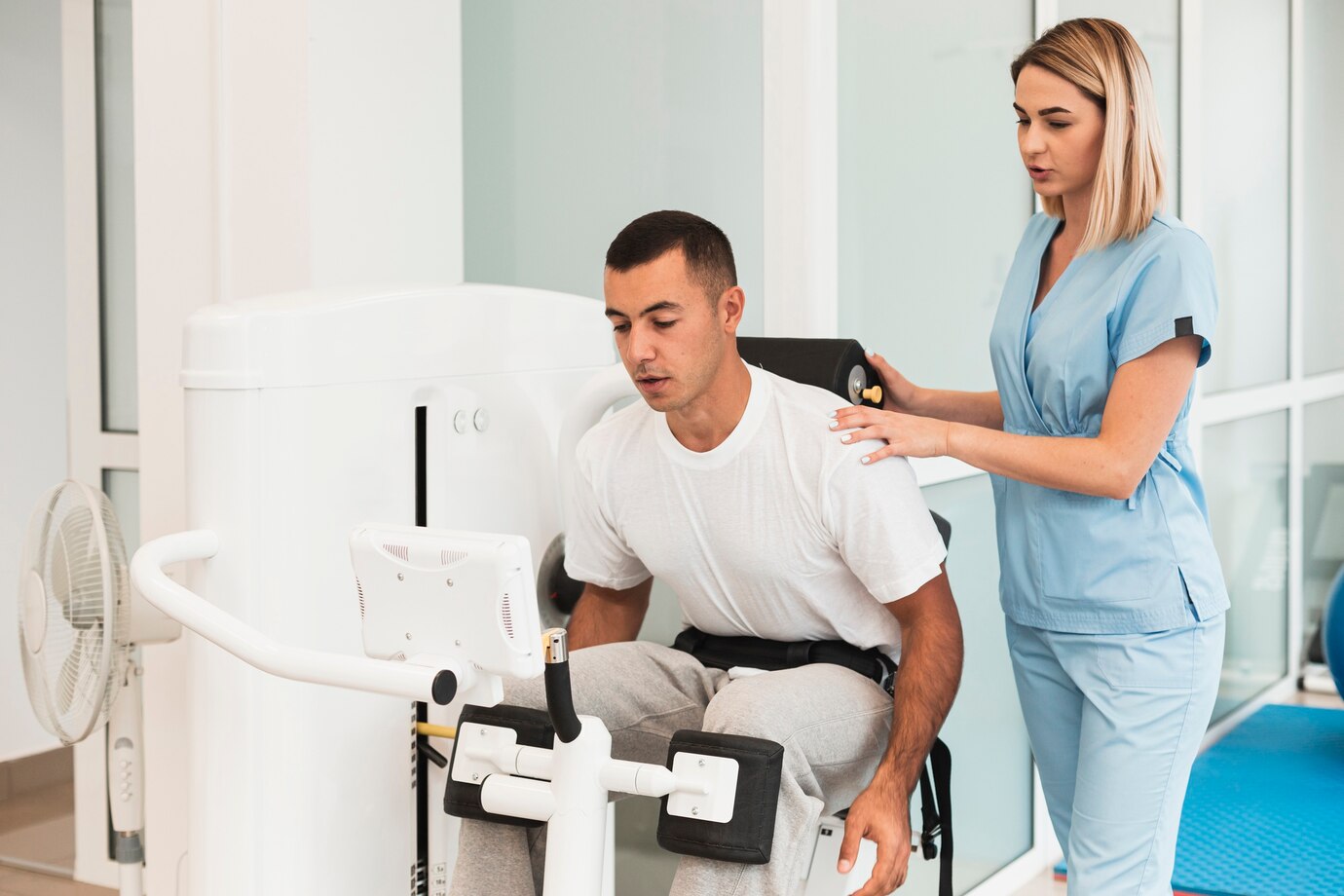- Sector 49, Noida, Uttar Pradesh 201301
- nestaphysio@gmail.com

Orthopaedic Physiotherapy & Rehabilitation aim is to restoring mobility, strength, and function in patients with bone, joint, and muscle conditions. It helps in recovery from fractures, arthritis, post-surgical rehabilitation, and sports injuries. With personalized exercises, pain management techniques, and hands-on therapy, it improves movement and reduces discomfort. This supports long-term musculoskeletal health and helps prevent future issues. Whether healing from an injury or surgery, orthopaedic physiotherapy aids in a quicker and safer recovery, restoring normal movement and function.

Pre and post-surgery rehabilitation plays a very important role in ensuring a smooth recovery and better surgical outcomes.
Pre-surgery rehab focuses on strengthening the body, improving mobility, and preparing the patient mentally and physically for the procedure. It can help reduce complications and speed up recovery.
Post-surgery rehab involves physiotherapy, pain management, and guided exercises to restore mobility, prevent stiffness, and regain strength. Following a structured rehabilitation plan enhances healing, minimizes risks, and improves overall quality of life after surgery. Always consult your doctor for a personalized rehab program suited to your condition.

Effective sports injury rehabilitation is crucial for a safe recovery, helping athletes restore strength, flexibility, and mobility. A structured rehab program includes relative* rest, physiotherapy, strength training, and gradual return to activity to prevent re-injury. Proper warm-up, stretching, and strengthening exercises play a key role in injury prevention. Maintaining good technique, using protective gear, and listening to your body can reduce the risk of sports-related injuries. Hydration, balanced nutrition, and adequate rest also support recovery and performance. Consulting a sports physiotherapist ensures a safe and efficient rehab process tailored to individual needs.

Musculoskeletal rehabilitation aim to restoring movement, strength, and function after injuries or conditions affecting the muscles, bones, joints, and ligaments. It includes physical therapy, pain management, strength training, and mobility exercises to promote healing and prevent further complications. A personalized rehab plan helps improve flexibility, reduce stiffness, and enhance overall physical performance. Early intervention and guided rehabilitation can significantly speed up recovery and prevent chronic issues. Consulting a specialist ensures the right approach for optimal musculoskeletal health.

Manual therapy is a hands-on treatment approach used by physiotherapists to relieve pain, improve mobility, and restore function in muscles and joints. It includes techniques like joint mobilization, soft tissue manipulation, and muscle stretching to reduce stiffness and enhance movement. This therapy is effective for conditions like back pain, sports injuries, arthritis, and post-surgical recovery. By improving blood circulation and reducing muscle tension, manual therapy helps in faster healing and long-term pain relief. When combined with exercises, it plays a key role in overall rehabilitation and recovery.

Chronic pain management focuses on reducing long-term pain and improving overall quality of life. It includes a combination of physiotherapy, medication, lifestyle changes and psychological support to help patients cope with persistent pain. Techniques such as manual therapy, stretching, and strength training improve mobility and reduce discomfort. Heat/cold therapy, TENS (electrical stimulation), and laser can provide pain relief.

Home physiotherapy provide professional rehabilitation and pain management in the comfort of your home. These services are ideal for individuals recovering from injuries, surgeries, chronic pain, or mobility issues. A physiotherapist creates a personalized treatment plan that includes manual therapy, stretching, strengthening exercises, and pain relief techniques like heat/cold therapy. Home-based physiotherapy is especially beneficial for elderly patients, post-surgical recovery, neurological conditions, and orthopedic rehabilitation. It ensures convenience, one-on-one care, and faster recovery while avoiding the hassle of traveling to a clinic.

Teleconsultation for physiotherapy allows patients to receive expert guidance from a physiotherapist remotely, through video calls or online sessions. It is ideal for individuals who cannot visit a clinic due to mobility issues, post-surgical recovery, or busy schedules. During the session, the physiotherapist assesses the condition, provides a personalized exercise plan, and offers advice on pain management and posture correction.